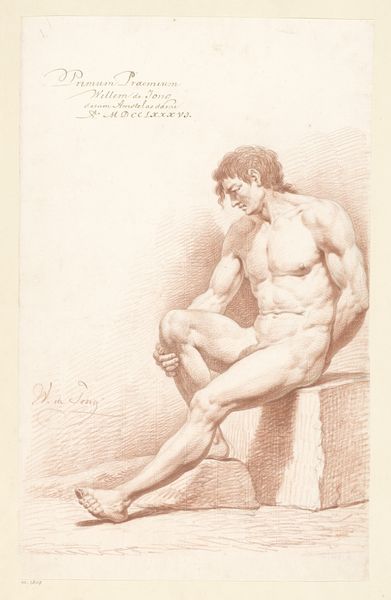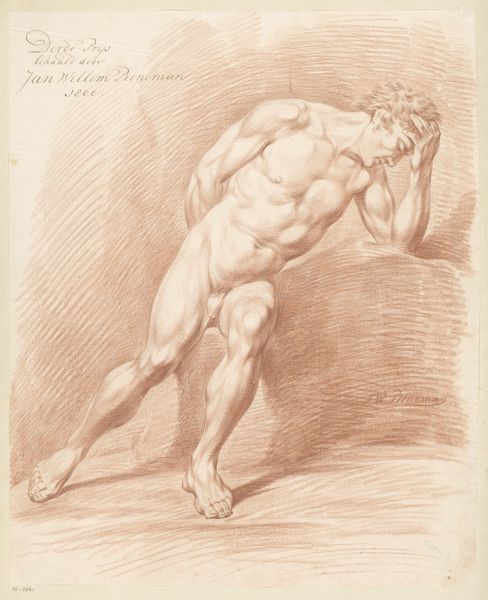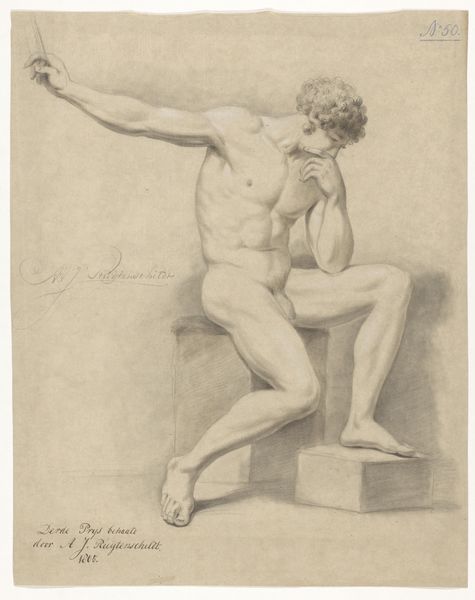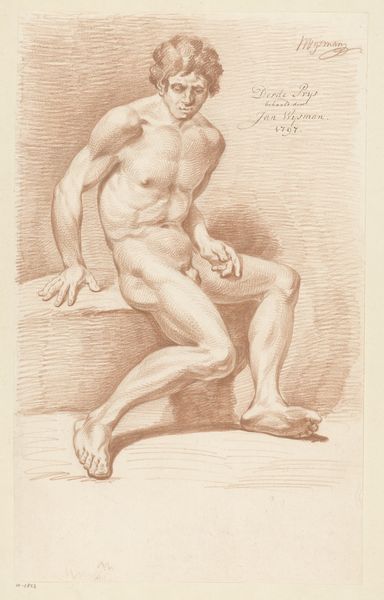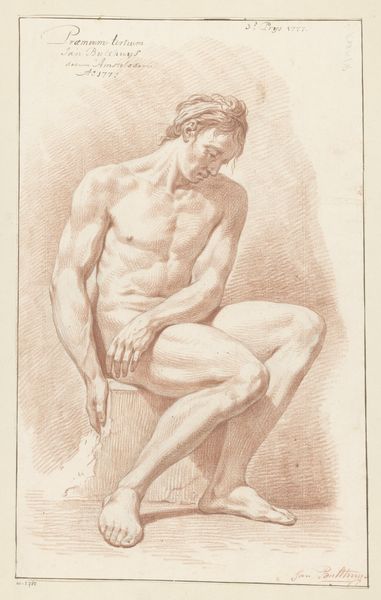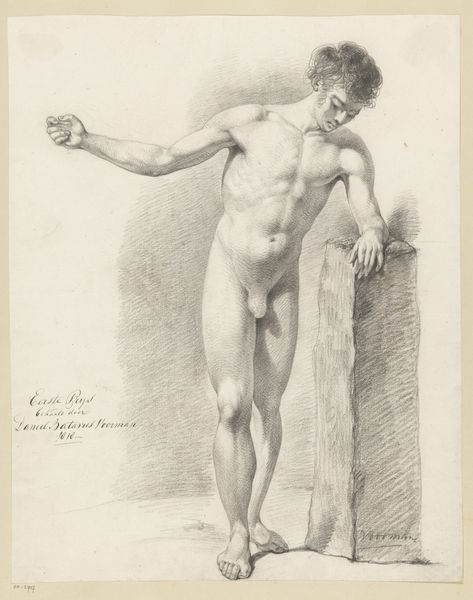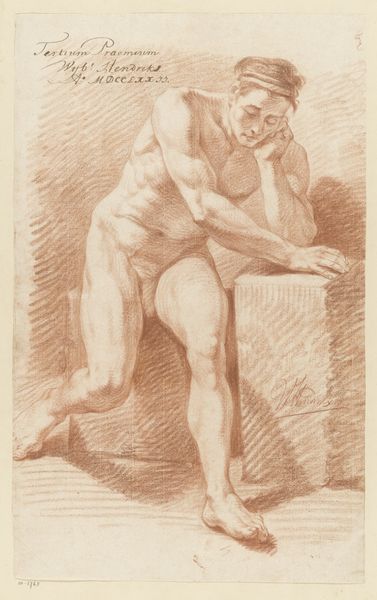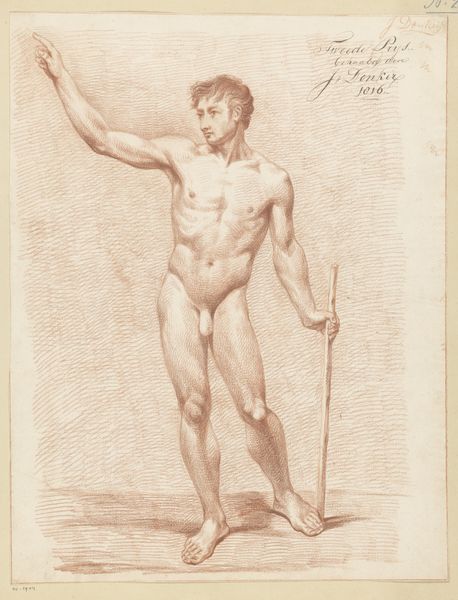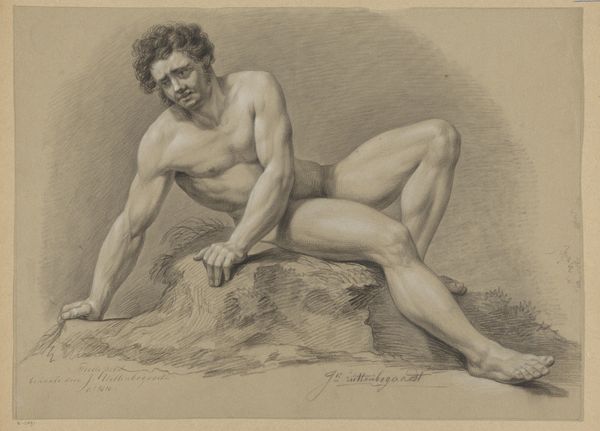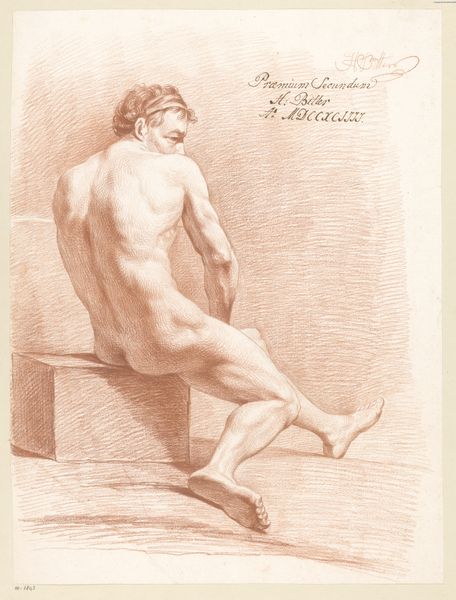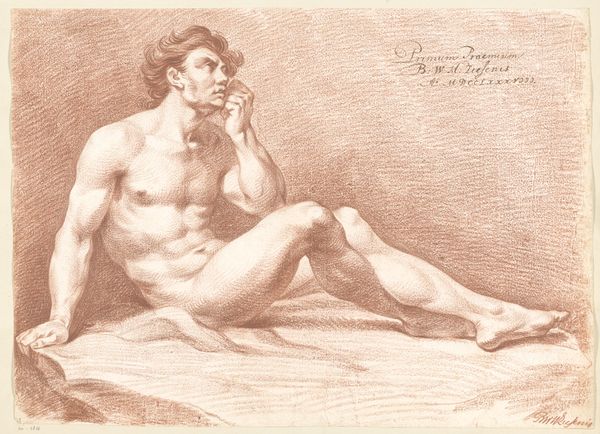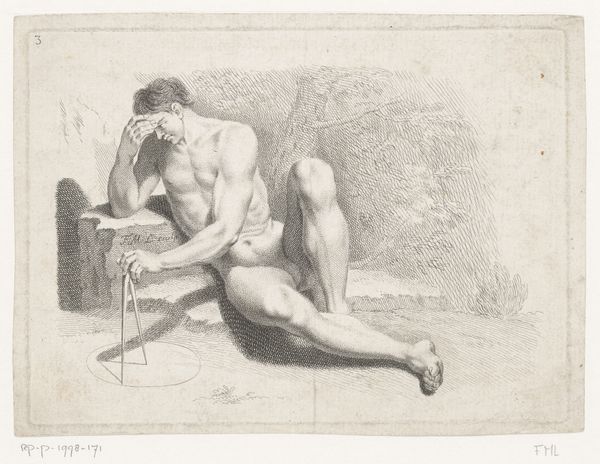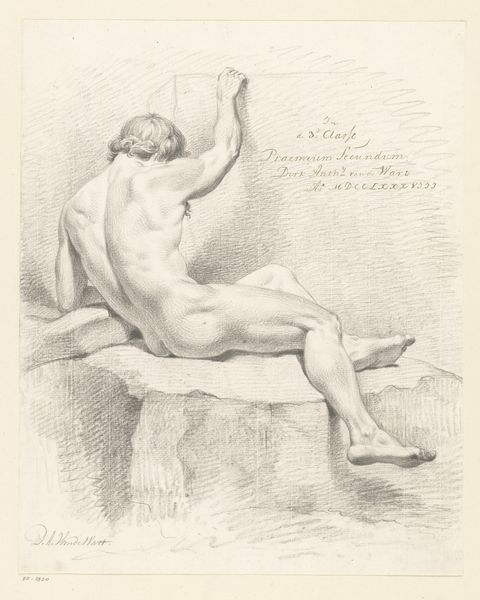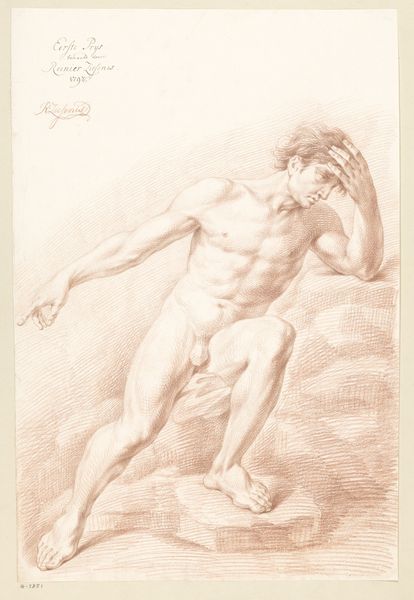
drawing, pencil
#
portrait
#
drawing
#
facial expression drawing
#
pencil sketch
#
charcoal drawing
#
portrait reference
#
pencil drawing
#
romanticism
#
pencil
#
animal drawing portrait
#
portrait drawing
#
facial study
#
academic-art
#
nude
#
portrait art
#
fine art portrait
Dimensions: height 528 mm, width 454 mm
Copyright: Rijks Museum: Open Domain
Daniël Batavus Voorman made this sanguine drawing of a seated male nude in 1815, winning second prize for it. This work gives us insight into the institutional history of art education in the Netherlands. During this period, art academies emphasized classical ideals, often involving the study of the human form through nude drawings. The male nude, in particular, carried connotations of heroism, strength, and ideal beauty, echoing the artistic traditions of ancient Greece and Rome. Voorman's drawing reflects this academic focus, showcasing his understanding of anatomy and his ability to render the human form in a classical style. Consider the social function of such drawings. They were not merely exercises in technical skill. They were also about instilling cultural values and shaping artistic taste. By studying and emulating classical forms, artists like Voorman were participating in a broader cultural project of defining national identity and asserting cultural authority. To understand this work better, we can consult archival records of the art academy, exhibition catalogues, and period writings on art theory. These resources provide valuable context for interpreting the drawing within its original social and institutional setting.
Comments
No comments
Be the first to comment and join the conversation on the ultimate creative platform.
